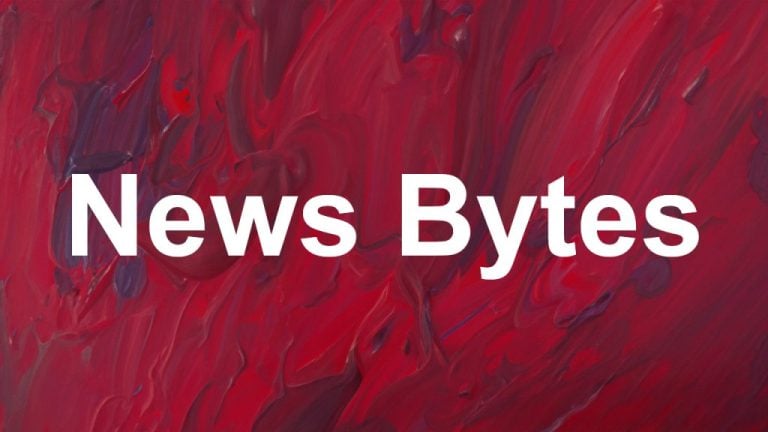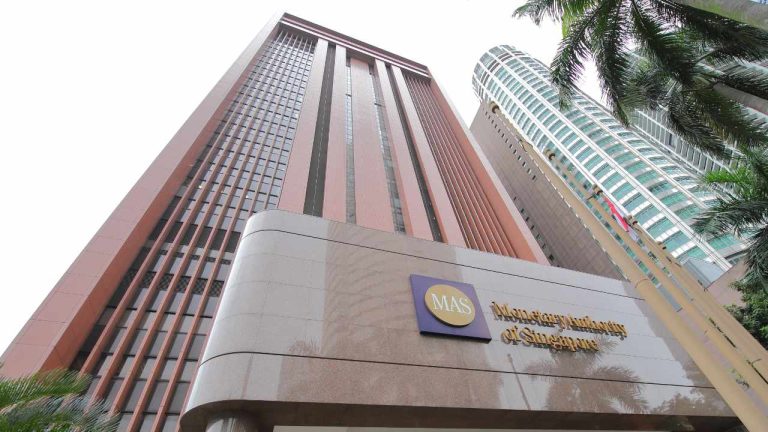
Paxos will partner with Southeast Asia’s largest bank, DBS, for the stablecoin launch.
Paxos International blockchain and tokenization platform has received full regulatory approval from the Monetary Authority of Singapore (MAS).
The Singapore wing of Paxos, the issuer of the gold-backed stablecoin Pax Gold (PAXG), has received approval to offer digital payment token services as a Major Payments Institutions.
The regulatory approval enables Paxos to launch a stablecoin in line with MAS’ upcoming regulatory framework.
 Singapore’s national goalkeeper, Hassan Sunny, has been appointed as the Chief Security Officer and spokesperson for HTX Global and TRON. The announcement was first made by Justin Sun on social media. Drawing parallels between Sunny’s role on the football field and his new position, Sun expressed confidence that just as Sunny defends the goal line […]
Singapore’s national goalkeeper, Hassan Sunny, has been appointed as the Chief Security Officer and spokesperson for HTX Global and TRON. The announcement was first made by Justin Sun on social media. Drawing parallels between Sunny’s role on the football field and his new position, Sun expressed confidence that just as Sunny defends the goal line […] Google Trends data reveals a consistent increase in search interest for “CBDC,” which stands for central bank digital currency, over the past five years. The term has maintained a score above 20 since August 2022, on a scale of 1 to 100, where 100 signifies peak interest. CBDCs See Consistent Search Growth, Top Regions Include […]
Google Trends data reveals a consistent increase in search interest for “CBDC,” which stands for central bank digital currency, over the past five years. The term has maintained a score above 20 since August 2022, on a scale of 1 to 100, where 100 signifies peak interest. CBDCs See Consistent Search Growth, Top Regions Include […] In a move to improve traditional cross-border payments, the Bank for International Settlements (BIS) has announced the launch of Project Rialto. This project aims to enhance instant cross-border payments by integrating a modular foreign exchange (FX) component with settlement in wholesale central bank digital currencies (CBDCs). The initiative, a collaboration between the BIS Innovation Hub […]
In a move to improve traditional cross-border payments, the Bank for International Settlements (BIS) has announced the launch of Project Rialto. This project aims to enhance instant cross-border payments by integrating a modular foreign exchange (FX) component with settlement in wholesale central bank digital currencies (CBDCs). The initiative, a collaboration between the BIS Innovation Hub […] This weekend, the Singaporean cryptocurrency firm QCP Capital reported a significant drop in market volatility after the approval of spot ethereum (ETH) exchange-traded funds (ETFs), despite ongoing catalysts. QCP highlighted that bitcoin is under bearish pressure due to potential new supply from the Mt Gox distribution, estimated at $9.6 billion, and from the DMM Bitcoin […]
This weekend, the Singaporean cryptocurrency firm QCP Capital reported a significant drop in market volatility after the approval of spot ethereum (ETH) exchange-traded funds (ETFs), despite ongoing catalysts. QCP highlighted that bitcoin is under bearish pressure due to potential new supply from the Mt Gox distribution, estimated at $9.6 billion, and from the DMM Bitcoin […]

Deutsche Bank joined Singapore’s tokenization project soon after reiterating skepticism about transparency about the world’s largest stablecoin, Tether.
Update May 14, 12:35 UTC: This article has been updated to include quotes from Interop Labs CEO Sergey Gorbunov
Deutsche Bank, a German multinational investment bank, is collaborating with Singapore's central bank on asset tokenization.
Deutsche Bank has joined the Monetary Authority of Singapore’s (MAS) Project Guardian, which focuses on asset tokenization in wholesale funding markets and decentralized finance (DeFi) applications.
 Singapore’s central bank, the Monetary Authority of Singapore (MAS), has announced amendments to the Payment Services Act to impose additional requirements on digital payment token service providers and broaden the scope of regulated services. The central bank warned that entities that do not fulfill the requirements must cease the activities when the amendments come into […]
Singapore’s central bank, the Monetary Authority of Singapore (MAS), has announced amendments to the Payment Services Act to impose additional requirements on digital payment token service providers and broaden the scope of regulated services. The central bank warned that entities that do not fulfill the requirements must cease the activities when the amendments come into […]
Worldcoin (WLD) has announced its launch in Singapore a week after pausing operations in three other nations. In a new company blog post, Worldcoin – founded by OpenAI CEO Sam Altman – says that its launch in Singapore will cap off a landmark year for the identity verification protocol. “Individuals in Singapore can now verify […]
The post ‘Landmark Year’ for Worldcoin As Eyeball-Scanning Crypto Project Launches in Singapore appeared first on The Daily Hodl.

Three Arrows Capital co-founder Su Zhu has faced his first interrogation in a Singapore court and is reportedly set to be released soon.
Su Zhu, co-founder of bankrupt cryptocurrency lender Three Arrows Capital (3AC), is reportedly set to be released soon, after facing an extensive interrogation in a Singapore court, Bloomberg reported.
Zhu was arrested in Singapore in September 2023 when he attempted to flee the country after a local court sentenced him to four months of imprisonment. 3AC’s joint liquidator, Teneo, said at the time that Zhu was planning to assist on matters related to 3AC, and to help recover assets from the defunct firm.
According to Bloomberg's Dec. 13 report, Zhu faced his first interrogation in Singapore this week, responding to Teneo lawyers in a two-day court hearing. Citing people familiar with the matter, Bloomberg said lawyers sought details about how the fund failed, and the whereabouts of assets. According to Bloomberg’s sources, Zhu is set to be released this month based on standard provisions for good behavior.